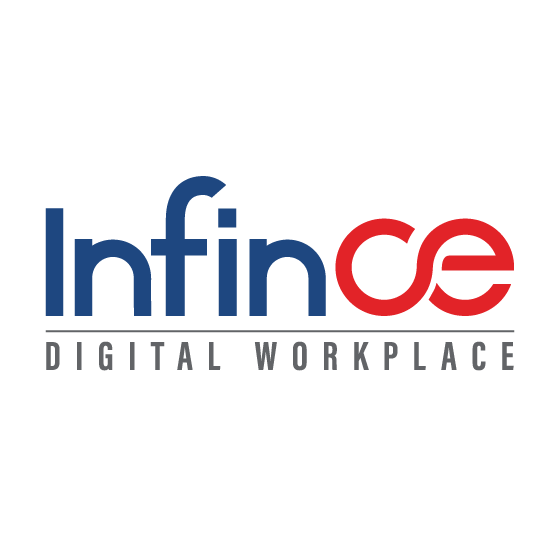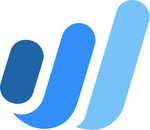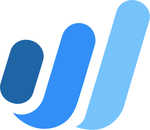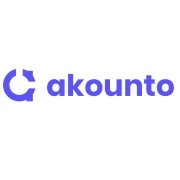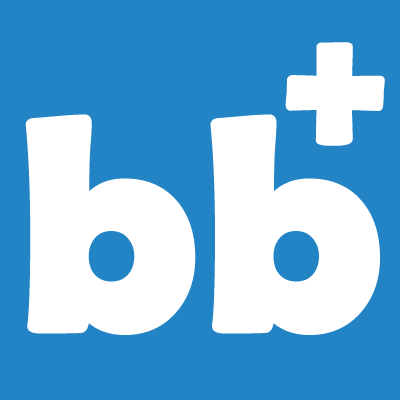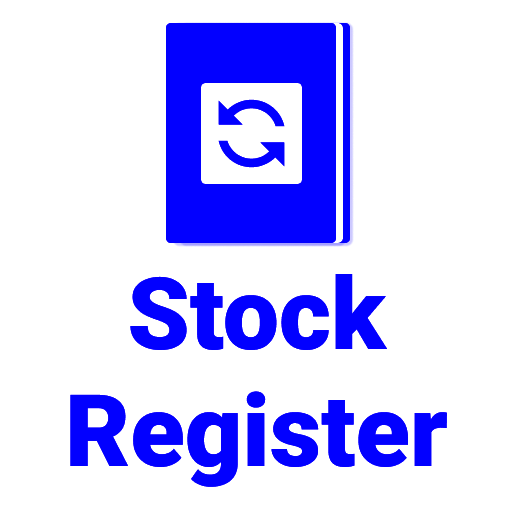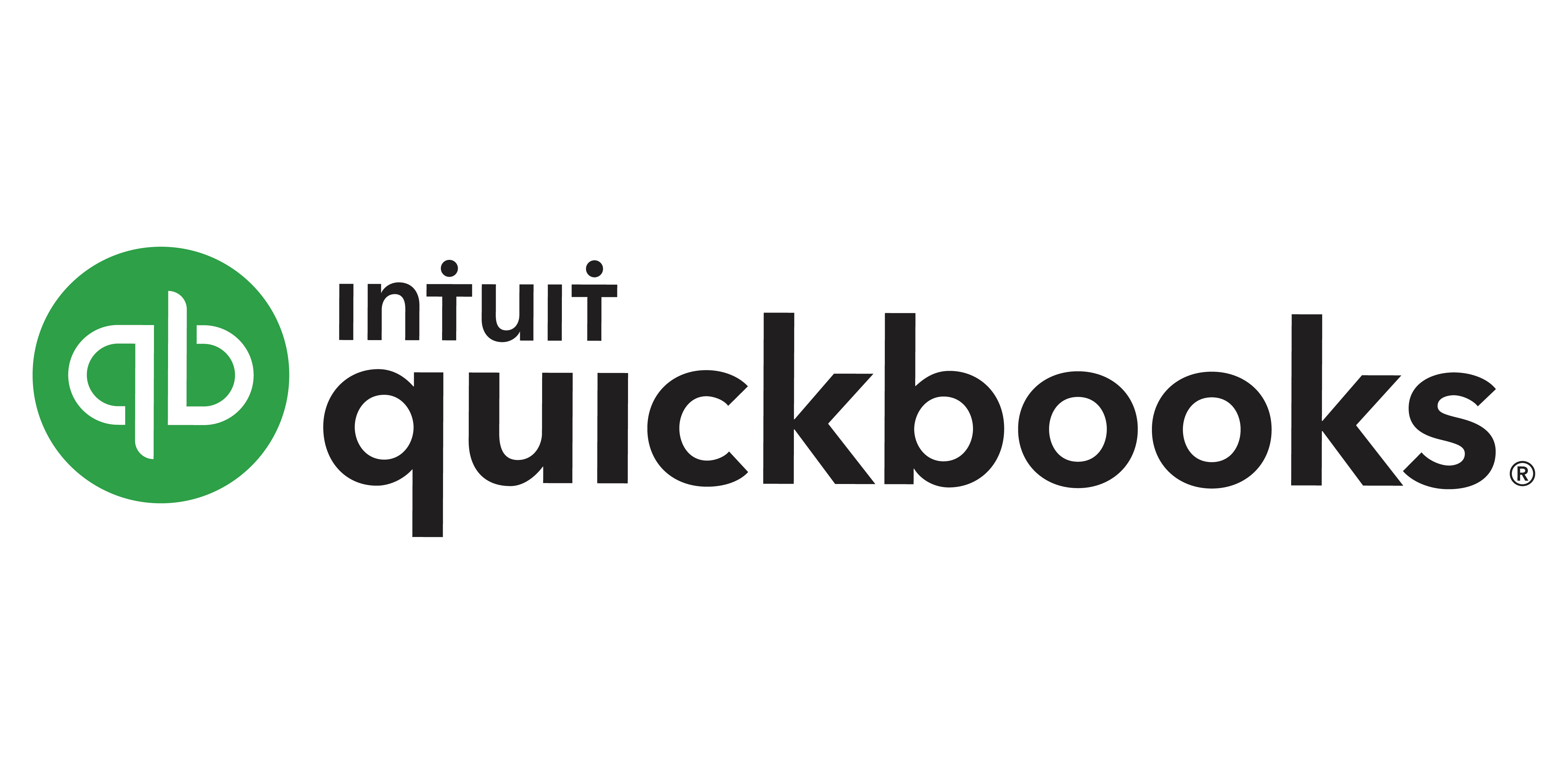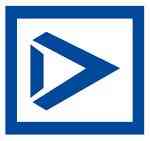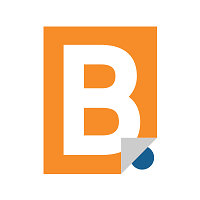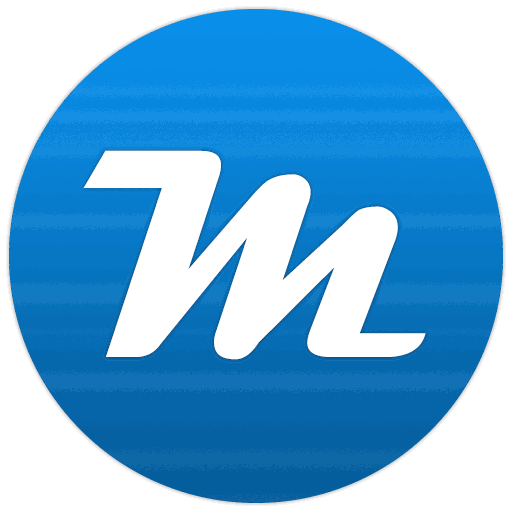Indeed, the majority of accounting software available today is made to work on a variety of platforms and devices. Regardless of the operating system (e.g., Windows, Mac, iOS, Android), you may use your accounting software on any of your devices, including desktops, laptops, tablets, and smartphones. This allows you to manage your funds conveniently and flexibly while on the road, without being restricted to a single device.
List of 20 Best Accounting Software
InfinCE - a platform that improves employee productivity and security, while also reducing operational costs. Created for the modern workplace, InfinCE offers a wide array of advanced features to streamline processes and enhance efficiency. With Infi...Read More InfinCE
Wave Accounting is a reputable and completely free accounting solution that has gained endorsement from accountants. Its intuitive features allow you to effortlessly connect your bank accounts, sync your expenses, and effectively track your finances...Read More Wave Accounting
Invoicing by Wave is a invoicing tool for small businesses, freelancers, and entrepreneurs! With its user-friendly interface and endless invoicing capabilities, collecting payments has never been easier. Say farewell to manual invoicing and embrace h...Read More Invoicing by Wave
Wave Personal solution for managing your personal finances. This free software empowers you to effortlessly track your income, expenses, and investments, all in one convenient place. With our secure cloud-based platform, you can easily stay on top of...Read More Wave Personal
EZOTO is a invoicing software designed to streamline your business operations. It offers seamless integration with GST, credit, and inventory management, making financial tracking a breeze. Our mobile app ensures convenient access and secure transact...Read More EZOTO
MYOB Essentials is a solution for managing your business efficiently. With its user-friendly interface, handle payroll, invoicing, and expenses seamlessly from any device and location. Simplify your financial tasks and boost productivity to take your...Read More MYOB Essentials
Akounto is a software for effortless invoicing, automated bookkeeping, and up-to-date business analytics. With just a few clicks, you can effortlessly manage your finances and streamline your business operations. Take control of your payments with cu...Read More Akounto
BusinessBook Plus is a solution for Accounting & Inventory management. Its automated general transaction process simplifies operations, increases profitability, and saves valuable time on managing complex account books. Say farewell to complicated bo...Read More BusinessBook Plus
Stock Register is a inventory management and billing solution tailored for small businesses. With comprehensive features such as stock tracking, daily sales and purchase monitoring, and party balance management, this software is guaranteed to enhance...Read More Stock Register
SO BAIMS (Simple Operation Billing Accounts and Inventory Management System) is a robust desktop software designed to cater to your specific business requirements. Our customizable features, updated by our committed team, provide a smooth and efficie...Read More SO BAIMS
Experience the ultimate trade management solution with KMS Busy. It caters to various trades like Commission Agents, Pesticides/Fertilizer Dealers, Retail Chains and Product Production. This powerful software comes with a range of advanced features s...Read More KMS Busy
QuickBooks Online, the premier accounting software for entrepreneurs and business owners. Streamline your financial management with its intuitive interface, top-notch security measures, and cutting-edge features such as Online bank connectivity and W...Read More QuickBooks Online
FOUR BROTHERS SUB-OFFICE is a client management solution for service-based industries. Seamlessly create estimates, quotes, and contracts for maintenance services. Schedule future appointments and send SMS notifications to keep your clients informed...Read More FOUR BROTHERS SUB-OFFICE
ClarityERP is a software developed by Datascan Information Systems, located in Pune, India. It is specifically designed to meet the requirements of manufacturing and trading businesses of small to medium size. Our solution offers a fully integrated a...Read More ClarityERP
CSMS – solution for effortless management of your cold store and warehouse operations. This dynamic software is tailor-made for warehousing and cold storage businesses, equipped with all the essential tools to streamline processes and boost ef...Read More CSMC
Bill4Time Billing, the reliable and effective time billing software for businesses. Say goodbye to chaos with seamless time and expense tracking, efficient project and client management, and effortless invoice creation and delivery. Boost your produc...Read More Bill4Time Billing
Bill.com is a web-based accounting platform designed to simplify your payment processes. Easily process ACH payments, generate and send electronic invoices, and set payment reminders with a user-friendly interface. Our unique content and efficient pr...Read More Bill.com
Onvio is a cloud-based accounting software for professionals. This all-in-one platform streamlines processes, enhances team cooperation, and maximizes productivity by integrating tax, accounting, and document management features. Elevate your workflo...Read More Onvio
XaTTaX GST solution for your GST filing and reconciliation requirements. With its user-friendly interface, XaTTaX ensures precise and secured processing of transactions, with multiple layers of security. No matter the scale of your business, XaTTaX h...Read More XaTTaX GST
m-Billing is a accounting solution for businesses. Simplify your financial management with our user-friendly software/app, equipped with features like GST billing, inventory management, and comprehensive balance sheet and P/L statement. Keep an organ...Read More m-Billing
Learn More About Accounting Software
- What Is Accounting Software?
- What Are the Recent Trends in Accounting Software?
- Benefits of Using Accounting Software
- Important Factors to Consider While Purchasing Accounting Software?
- What Are the Key Features to Look for in Accounting Software?
- Why Do Businesses Need Accounting Software?
- How Much Time Is Required to Implement Accounting Software?
- What Is the Level of Customization Available in Accounting Software?
- Which Industries Can Benefit the Most from Accounting Software?
- Conclusion
What Is Accounting Software?
A computer application called accounting software was created to make financial tasks easier and more efficient for individuals, businesses, and organizations. It enables users to centrally and systematically track, document, and manage their financial transactions, including income, expenses, and taxes. Fundamentally, accounting software reduces the possibility of human mistakes by automating repetitive bookkeeping tasks, doing away with the necessity for manual computations.
Additionally, it gives customers access to real-time data analysis and insights, empowering them to track the financial health of their company and make well-informed decisions. The capacity of accounting software to save time and effort is one of its primary advantages. It allows customers to focus on other important facets of their business by automating processes.
It is a complete solution for all financial demands because it also provides features like inventory management, budget tracking, and invoicing. The precision and dependability of accounting software an additional benefits. Users may access their financial information at any time and from any location using cloud-based solutions, guaranteeing that their records are correct and up to date.
Additionally, sophisticated security procedures are implemented to guarantee the safety of private financial data. It is crucial to search for features that fit your budget and unique requirements when thinking about buying accounting software. Financial reporting, tax preparation, and multi-currency capability are a few crucial characteristics to search for.
The software's usability and interoperability with your present systems are also very important factors. To sum up, accounting software is a useful instrument for accurately, quickly, and efficiently handling financial responsibilities. It may help companies of all kinds, from independent contractors to major organizations, thanks to its sophisticated features. Finding the ideal accounting software that satisfies your needs and advances your financial objectives can be accomplished by comprehending the financial requirements of your company and investigating your possibilities.
What Are the Recent Trends in Accounting Software?
Rapid developments and trends in the accounting software industry in recent years have had a significant influence on how companies handle their money. The alternatives for accounting software have never been more varied and advanced thanks to the development of cloud computing, automation, and artificial intelligence. The main accounting software trends that every customer should be aware of are covered here.
1. Cloud-Based Solutions: The extensive use of cloud-based solutions is one of the major developments in the accounting software sector. For companies of all sizes, these software choices provide more accessibility, scalability, and flexibility. Cloud-based accounting software facilitates remote work and collaboration by enabling users to view their financial data from any location with an internet connection.
2. Automation and AI: The combination of automation and AI tools is another noteworthy development in accounting software. The way firms manage time-consuming and laborious operations like data input and reconciliation has been completely transformed by these technologies. Accounting software can evaluate data and forecast outcomes with the aid of machine learning algorithms, assisting companies in making better financial decisions.
3. Mobile Applications: The need for mobile accounting software has been growing as more people use smartphones and tablets for work. These apps facilitate remote financial management by enabling users to view their financial information at any time. Additionally, mobile accounting software makes it easier for firms to keep track of their spending by providing tools like invoice preparation and receipt scanning.
4. Integration and Customization: Since companies now employ a variety of software for a range of objectives, it is essential that these tools integrate with one another. It is now simpler for businesses to handle all of their data in one location because to the connectors that many accounting software providers offer with other company software, such as CRM, project management, and e-commerce platforms. Furthermore, purchasers now place a high value on customization options because they enable them to modify the software to meet their unique requirements.
5. Security: Data security has emerged as a major concern for businesses due to the rise in online financial transactions. In order to safeguard the financial information of their users, accounting software companies are continuously enhancing their security features, such as data encryption, multi-factor authentication, and frequent backups.
Benefits of Using Accounting Software
When it comes to managing the financial aspects of a business, having an efficient and accurate system in place is crucial. This is where accounting software comes into play, providing a streamlined and organized approach to handling financial tasks. What are the benefits of using accounting software? Let’s take a closer look.
1. Time-Saving Solution: As a business owner, time is a valuable resource. One of the top advantages of utilizing accounting software is saving time. With manual bookkeeping, tasks such as data entry, reconciliations, and financial reports can consume significant amounts of time and effort. Accounting software automates these processes, freeing up time for business owners to focus on other critical tasks.
2. Increased Accuracy: Manual bookkeeping is prone to human error, and even the smallest mistake can have significant consequences. Accounting software eliminates the risk of human error by automating calculations and data entry, ensuring accurate financial records.
3. Real-Time Updates: With manual bookkeeping, it can take time to update financial records and get an accurate view of the business's financial health. However, accounting software provides real-time updates, allowing business owners to make informed decisions based on up-to-date financial data.
4. Seamless Financial: Reporting Generating financial reports is an essential aspect of managing a business, but it can also be time-consuming and complex. Accounting software simplifies the process by automatically generating financial reports with just a few clicks. These reports provide a comprehensive overview of the business's financial performance, enabling informed decision-making.
5. Streamlined Invoicing and Billing: With accounting software, creating and sending invoices becomes a hassle-free process. The software allows you to customize and personalize invoices, reducing the risk of errors and delays. Additionally, features such as automated reminders can help ensure timely payments from clients.
6. Improved Financial Management: By providing a centralized and organized platform for all financial transactions, accounting software streamlines financial management for businesses. It allows for better tracking of expenses, income, and cash flow, enabling business owners to make informed decisions about budgeting and forecasting.
7. Cost-Effective Solution: Using accounting software can save businesses money in the long run. It eliminates the need for hiring a dedicated bookkeeper, reducing labor costs. Additionally, avoiding errors and delays in financial tasks can prevent losses and help businesses stay financially efficient.
Important Factors to Consider While Purchasing Accounting Software?
Indeed, the following are some crucial elements to take into account while buying accounting software:
1. Features and Functionality: The features and functionality of accounting software are the first and most crucial consideration when making a purchase. It's crucial to identify the precise characteristics your company requires because each software may have varying capabilities. Financial reporting, inventory control, budgeting, and invoicing are a few typical aspects to search for.
2. Scalability: Your accounting requirements will expand along with your company. Selecting software that can grow with your company and meet your future requirements is essential. Seek software that provides a range of price options or add-on capabilities that you may use as your company grows.
3. User-Friendly Interface: Any software must have an intuitive user interface. You'll be able to concentrate on other crucial facets of your organization since it will save you time and frustration. Before buying, think about using a trial or sample version of the program to see how it works for you.
4. Cloud versus On-Premise: While on-premise accounting software needs to be installed on a particular device, cloud-based accounting software lets you view your data from any location with an internet connection. Although remote access is a benefit of cloud-based software, sensitive financial data may be safer with on-premise software. Make a decision based on the unique requirements of your company.
5. Pricing and Affordability: Since accounting software can range widely in price, it's critical to establish your spending limit and weigh your options. While some software has a monthly or annual membership fee, others are available for a one-time purchase. Select software that matches your budget by taking into account the features and support that are included in the price.
6. Customer assistance: When it comes to using any product, having trustworthy customer assistance is essential. Choose software that provides a range of support channels, including live chat, email, and phone. To assist you in troubleshooting any issues, see if the software offers online resources like tutorials or a knowledge base.
7. Integration with Other Systems: Your project management software and CRM, among other software and systems utilized in your company, should work in unison with your accounting software. Your business operations will be streamlined, and data flow will be guaranteed.
8. Security: Sensitive financial information must be safeguarded. Verify that the program you select has robust security features like encryption and frequent backups. To prevent any legal problems, make sure the software conforms to any data protection legislation.
9. Reviews and Reputation: Examine user reviews and ratings prior to making a purchase. This will give you a sense of how well the software works and how easy it is to use. Asking other companies in your sector for recommendations is another option.
10. Training and Onboarding: It's crucial to take into account the training and onboarding procedure because the majority of accounting software has a learning curve. To help you catch up quickly, look for software that offers training materials like webinars or tutorials.
What Are the Key Features to Look for in Accounting Software?
To make sure you are investing wisely, you should take into account a number of important aspects when searching for accounting software. In addition to making financial management simpler and more effective, these features will support the expansion and success of your company.
The following are the most important characteristics of accounting software:
1. Simple Navigation and User-Friendly Interface: The software's usability should be your primary concern. Even people who are not tech-savvy should be able to easily utilize its straightforward and intuitive UI. When utilizing the software, this will save you time and frustration.
2. Scalability: Your accounting requirements will grow along with your company. As a result, selecting software that can expand with your company is crucial. Choose software that can be readily upgraded to accommodate your evolving needs or that offers a variety of packages.
3. Cloud-Based or On-Premise: Accounting software comes in two varieties: cloud-based and on-premise. On-premise software is installed and maintained on the company's own servers, whereas cloud-based software is hosted on distant servers. Based on your needs and budget, think about which solution would be best for your company.
4. Comprehensive Financial Management: All of the fundamental accounting functions, including the general ledger, accounts payable and receivable, budgeting, invoicing, and financial reporting, should be included in the program. Tax computations and multi-currency transactions ought to be supported as well.
5. System Integration: CRM, inventory control, and e-commerce platforms are just a few of the systems that your accounting software ought to be able to interface with. By doing this, you may prevent data duplication and streamline your business processes.
6. Automation and Customization: Seek out software that provides customization choices and automates repetitive chores. In addition to saving you time and effort, this will enable you to customize the program to your unique company requirements.
7. Security and Backup: The program should have strong security measures in place because your financial data is sensitive and important. In the event of a system failure, it should also have a dependable backup system to guard against data loss.
8. Customer Support: Since technical difficulties can occur at any time, confirm that the software provider provides round-the-clock customer support to address any issues you may encounter. You may choose the accounting software that best meets your company's demands by taking into account these important factors. Remember that the financial management of your company can be greatly impacted by the software you use, so do your homework and make an informed decision.
Why Do Businesses Need Accounting Software?
Accounting software, which offers a simplified and effective method of organizing financial data, has grown to be a vital tool for companies of all kinds. Businesses must have their money in order to make strategic decisions and stay ahead of the competition in today's fast-paced and cutthroat industry. We will go over the many justifications for why companies require accounting software in this buyer's guide, as well as how it can enhance their operations.
1. Financial Process Automation: The days of manually entering financial transactions and calculating figures on a spreadsheet are long gone. Businesses can automate financial procedures like payroll, invoicing, and bookkeeping with accounting software. This offers a more accurate and current picture of the company's financial health, in addition to saving time and lowering the possibility of human mistakes.
2. Monitors Revenue and Expenses: Accounting software gives companies a thorough picture of their financial situation by enabling them to monitor their revenue and expenses. Because it enables users to examine the profitability of every facet of their operations, this feature is particularly helpful for companies with a variety of revenue and expense streams.
3. Produces Insights and Reports: The capacity of accounting software to produce comprehensive reports and insights is one of its biggest advantages. Businesses can gain a better knowledge of their cash flow, profitability, and financial performance by using these reports. This information is essential for determining areas that require improvement and for making well-informed judgments.
4. Promotes Tax Compliance: Businesses may find tax compliance to be a difficult undertaking, particularly during tax season. Businesses can more easily track their sales, expenses, and taxes with accounting software, which facilitates the filing of accurate tax returns. This helps prevent penalties for inaccurate tax filings in addition to saving time.
5. Facilitates Accessibility and Collaboration: Businesses can save their financial data online and access it from any location with an internet connection, thanks to cloud-based accounting software. This makes it easier for team members, accountants, and other stakeholders to collaborate, in addition to facilitating remote work.
6. Increases Productivity and Efficiency: Accounting software can greatly increase a company's productivity and efficiency by automating financial procedures and delivering precise and timely data. This facilitates the smooth operation of the company and frees up staff to concentrate on more strategic duties.
How Much Time Is Required to Implement Accounting Software?
The size of your company, the intricacy of your accounting procedures, and the features and customization possibilities of the software you select all affect how long it takes to adopt accounting software. The implementation procedure can take a few weeks to several months on average. This covers the time required for training, data migration, and initial setup.
It's crucial to remember that the implementation process may take longer the more features and customizations you need. Smaller companies with less complicated accounting requirements could be able to finish the adoption process faster, but larger companies with more intricate procedures might need more time.
It's crucial to consider the time needed for implementation when selecting accounting software and make sure your company can withstand any possible downtime during the changeover. Speaking with your software vendor is also essential to comprehending their implementation procedure and any potential obstacles.
Overall, the advantages of having an accurate and efficient accounting system can far outweigh any initial difficulties, even though the implementation process may take some time and effort. You can guarantee a seamless transition and optimize the advantages of your new accounting software by choosing the appropriate program and getting ready for the implementation process.
What Is the Level of Customization Available in Accounting Software?
Different accounting software programs on the market offer varying degrees of flexibility. Some may only give a small number of customization choices, but others offer a great deal of flexibility to meet a company's unique requirements. To choose the accounting software that best suits your company, it is crucial for buyers to take into account the degree of customization available.
The capacity to modify accounting software to meet the unique requirements of your sector is a crucial component of customization. A restaurant could need different features and reports than a retail establishment, for instance. Seek out software that lets you alter features, reports, and templates to meet the particular needs of your sector. The software's adaptability to your business procedures is another crucial consideration.
Accounting software should be able to easily adjust to the distinct workflows of any firm. Choose software that can be customized to fit your current procedures or that lets you design new ones within it. The degree of personalization also extends to the software's overall design and user interface. The efficiency and usability of the software can be greatly improved by an intuitive and eye-catching interface.
Customizing the dashboard, menus, and fields in many accounting software programs makes it simpler to navigate and access the elements you use most frequently. Some software allows for the creation of custom reports in addition to industry, process, and design customization. This is particularly helpful if you wish to analyze data in a particular way or if your company needs specialized reports.
Seek out software that gives you the option to build your reports or provides a range of pre-made templates. Although customization has advantages, it is important to take into account the degree of technical know-how needed to make adjustments. While some software offers an easy-to-use and straightforward customizable interface, others may need coding or extensive technical skills.
Make sure the software you select complements the technical skills of your team. In conclusion, the productivity and efficiency of your company can be greatly impacted by the degree of customisation that accounting software offers. To locate software that suits your unique requirements, take into account the degree of customisation for industry, processes, interface, and reports when assessing possible solutions.
Which Industries Can Benefit the Most from Accounting Software?
A useful tool for companies of all sizes and sectors is accounting software. By streamlining and organizing financial operations, this software enables businesses to handle their finances more effectively. However, because of certain features and functionalities that meet their particular requirements, some businesses might gain a great deal from the use of accounting software.
The industries that stand to gain the most from the use of accounting software will be covered in this buyer's guide.
1. Online and retail sales: High transaction volumes and intricate inventory management are challenges faced by the retail and e-commerce sectors. They can effectively track their inventory levels and manage their cash flow with the use of accounting software. Additionally, it may be integrated with e-commerce systems, which simplifies order fulfillment and manages online sales.
2. Building, managing: several projects, monitoring job expenses, and overseeing subcontractor payments are all part of the construction industry. Construction companies can remain on top of these duties, generate precise estimations, and efficiently manage cash flow with the use of accounting software.
3. Expert Services: Accounting requirements are particular to professional service sectors like marketing agencies, consulting firms, and legal firms. They may manage client spending, keep track of billable hours, and produce comprehensive reports for client billing with the help of accounting software. Additionally, it makes project administration simple and streamlines client communications.
4. Medical Care: Accurate and consistent financial records are essential in the healthcare sector due to its intricate billing and payment procedures. Healthcare facilities can use accounting software to track payments, handle insurance claims, and manage patient invoices. In addition, it offers thorough financial reporting for audits and upholds HIPAA compliance.
5. Hospitality: Due to the high volume of transactions, hotels, restaurants, and other hospitality firms must monitor inventory levels. Accounting software facilitates the automation of these procedures, revenue and expense tracking, and the creation of comprehensive reports on client spending and profitability.
6. Non-Profit: Accounting requirements specific to non-profit companies include managing budget allocations, tracking grants and donations, and more. Accounting software can help non-profits manage their finances, ensure regulatory compliance, and generate comprehensive reports for boards and funders.
Conclusion
In summary, keeping accurate financial records, controlling cash flow, and simplifying daily operations all depend on selecting the best accounting software for your company. You can choose the program that best meets your demands by taking into account important elements, including your company's size, budget, and particular requirements.
Make sure to read user reviews, try out the program, and take advantage of any free trials or demos when you're investigating and weighing your options. Pay attention to the software company's training materials and customer support choices. Keep in mind that there is no one-size-fits-all approach, and what suits one company might not suit another.
It's critical to thoroughly assess your company's requirements and rank the features and resources that would be most helpful to you. Purchasing accounting software is an investment in your company's future prosperity. You may improve your financial control, cut down on errors, and save time with the correct software. We hope that this buyer's guide has helped you make a selection and given you useful insights. I wish you luck in locating the ideal accounting program for your company!
Accounting Software FAQ's
Can Accounting Software Be Accessed Across Multiple Devices and Platforms?
Is Accounting Software Future-Proof and Adaptable to Emerging Technologies Like Ai, Blockchain or Iot?
Yes, accounting software is flexible enough to accommodate new technologies like blockchain, artificial intelligence, and the Internet of Things. Accounting software is always changing to satisfy the shifting demands of organizations due to technological improvements.
Blockchain is being used for safe and transparent transactions, AI is being integrated for automated data entry and analysis, and IoT is being integrated for real-time tracking of expenses and inventory. Because of this, accounting software is a wise investment for companies looking to maintain their competitive edge in the dynamic business environment.
Is There a Free Trial Offered to Assess Accounting Software Before Committing?
Indeed, a free trial period is provided by the majority of accounting software vendors so that consumers can evaluate the program before committing. This enables prospective clients to evaluate the software's features and functionalities to see if they suit their needs as a business.
For customers who wish to test out their product before committing to a subscription plan, some suppliers even provide a limited-featured free version. Utilizing free trials is usually advised to make sure the software is a good fit for your company.
Does Accounting Software Offer Data Security Features and Meet Regulatory Compliance Standards?
Yes, in order to protect the privacy and security of sensitive financial data, accounting software frequently includes strong data security features, including data encryption, secure login procedures, and frequent data backups.
Additionally, it frequently satisfies regulatory compliance requirements established by organizations and government agencies such as the SEC and IRS. This guarantees that companies utilizing accounting software can comply with all relevant auditing and financial reporting regulations.
Can Accounting Software Integrate Seamlessly with Existing Tools and Platforms?
Indeed, a lot of accounting software applications may easily interact with current platforms and technologies. Because information can be readily moved between systems without requiring manual entry, this enables a more streamlined and effective workflow.
Integration possibilities may include well-known platforms like QuickBooks, Shopify, and PayPal, depending on the program. Businesses are able to make well-informed decisions by having a thorough picture of financial data, thanks to this connectivity.

